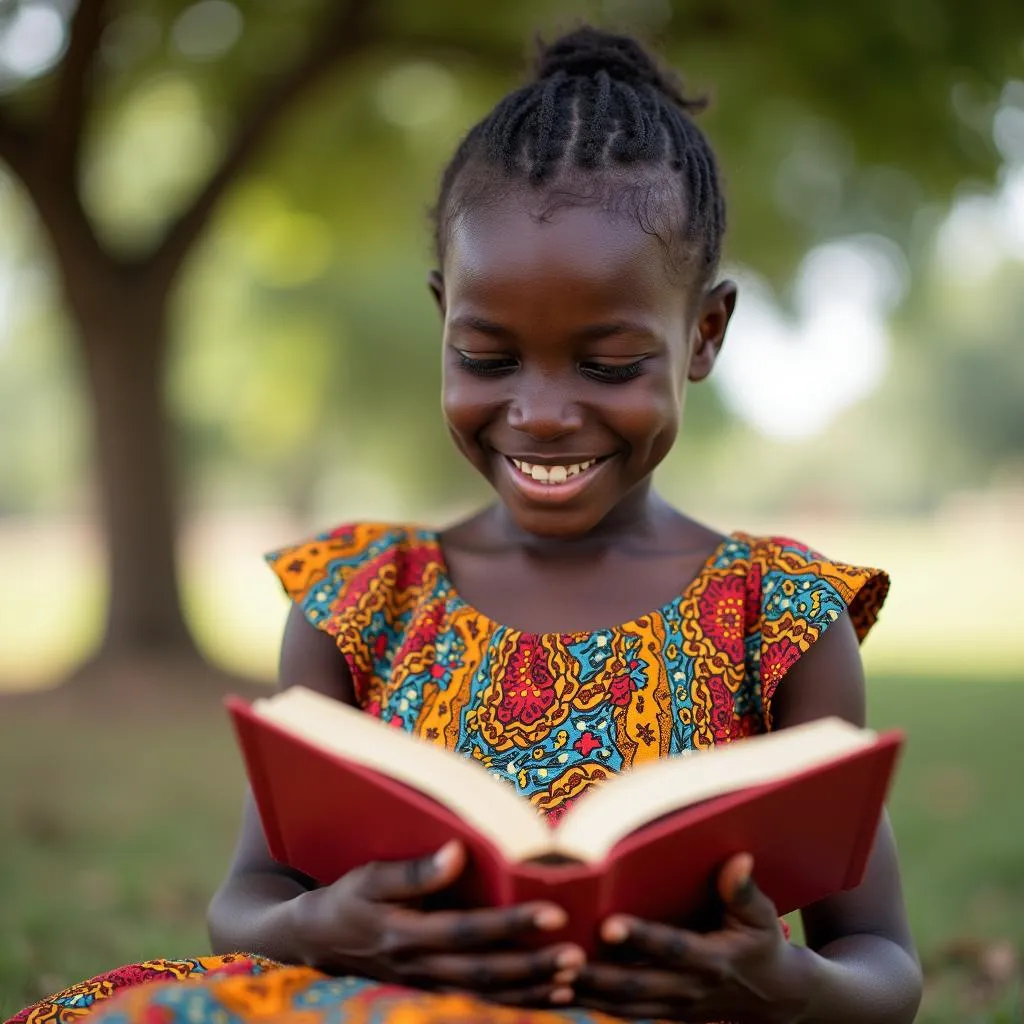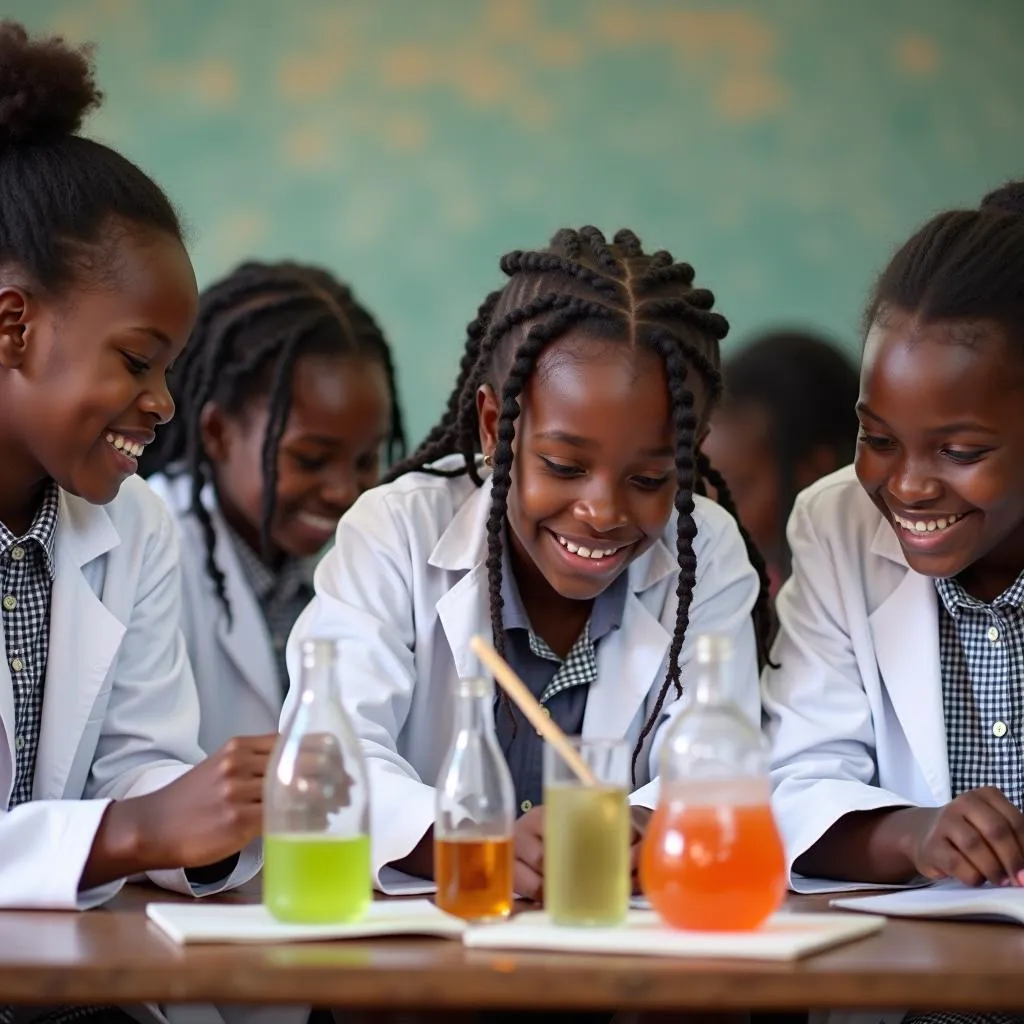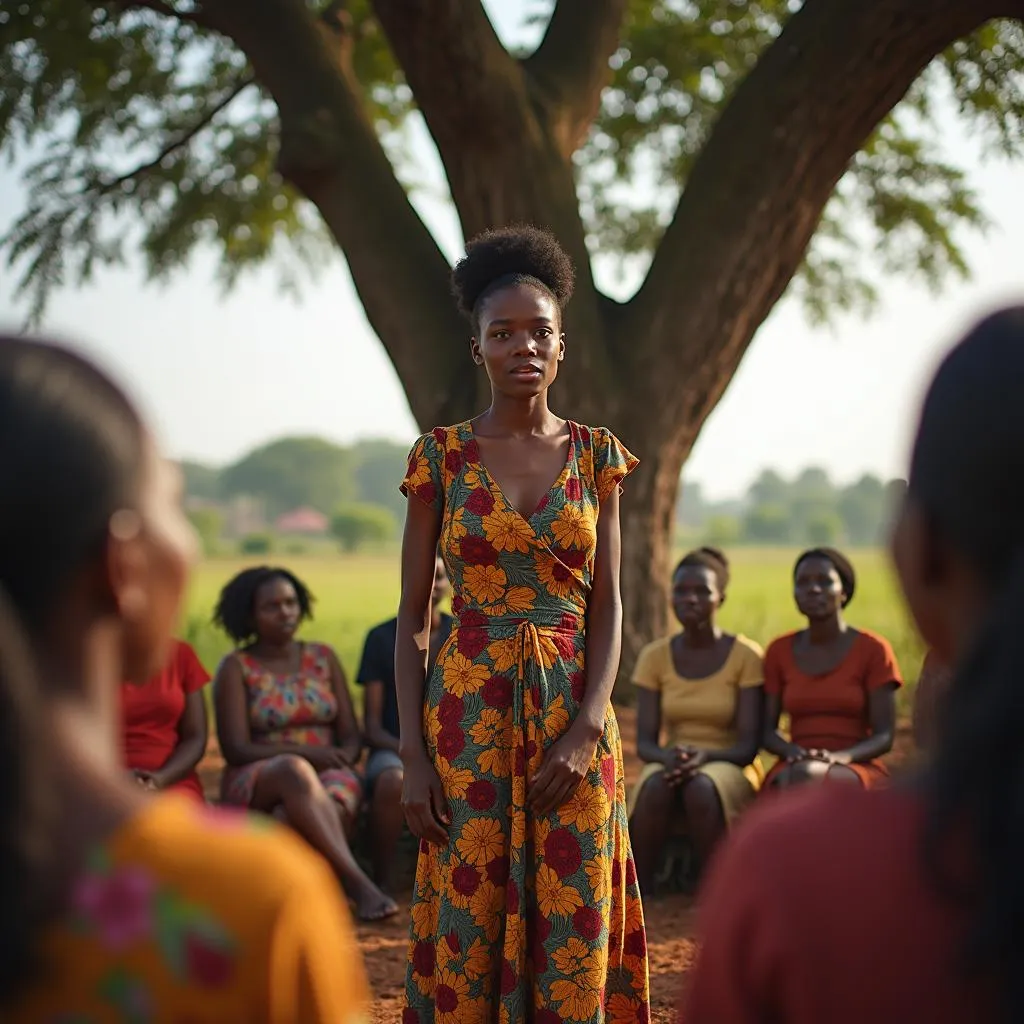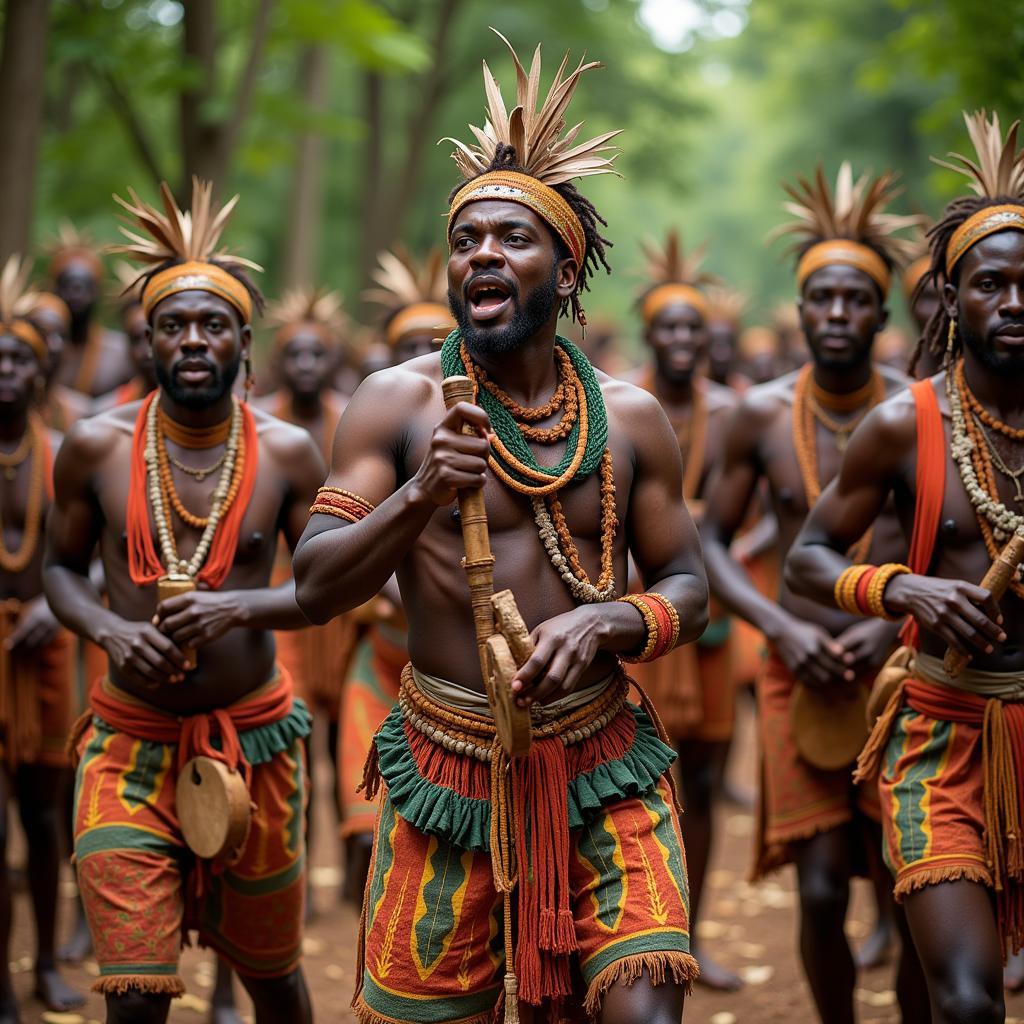The African Girl Child: Breaking Barriers, Embracing Potential
The narrative surrounding the African Girl Child is evolving, shifting from a focus on challenges to one that celebrates resilience, potential, and the power of opportunity. While obstacles still exist, understanding the multifaceted reality of the African girl child requires acknowledging both the adversities and the triumphs that shape her journey.
Beyond the Statistics: Understanding the African Girl Child’s Reality
Often, conversations about the African girl child revolve around stark statistics highlighting poverty, lack of education, and child marriage. While these issues are undeniable realities for many, it’s crucial to move beyond viewing the African girl child solely through a lens of disadvantage.
 Smiling African girl with a book
Smiling African girl with a book
This means understanding the diversity of experiences across the continent’s 54 countries, each with its unique cultural context, socioeconomic realities, and opportunities. It necessitates listening to the voices and stories of the girls themselves, recognizing their agency, strength, and aspirations.
Education: The Cornerstone of Empowerment
Access to quality education is widely recognized as the most powerful tool for empowering the African girl child. Education equips girls with knowledge, critical thinking skills, and the ability to advocate for themselves and their communities.
 African girls engaged in a science lesson
African girls engaged in a science lesson
However, challenges like school fees, lack of sanitary facilities, and early marriage often prevent girls from accessing and completing their education. Addressing these barriers through initiatives like scholarships, mentorship programs, and community awareness campaigns is critical in unlocking the potential of millions of girls.
Breaking Barriers: Champions of Change
Across Africa, a new generation of women is emerging as powerful role models for girls, proving that anything is possible with determination and opportunity. From entrepreneurs and scientists to artists and activists, these women are shattering glass ceilings and paving the way for future generations.
 African woman leading a community discussion
African woman leading a community discussion
Organizations like the African Girls Initiative, The Girl Generation, and many others are working tirelessly to create a brighter future for girls by providing education, healthcare, and leadership training. These efforts are instrumental in creating a ripple effect of positive change.
Investing in the Future: The Promise of the African Girl Child
Investing in the African girl child isn’t just a moral imperative; it’s a smart investment in the future of the continent. Educated and empowered girls are more likely to lead healthier, more productive lives, contribute to economic growth, and break the cycle of poverty.
When we empower the African girl child, we empower not just individuals but entire communities and nations. It’s time to move beyond the narrative of need and embrace the narrative of potential, recognizing the African girl child as the powerful force for positive change that she truly is.
Frequently Asked Questions:
- What are some of the biggest challenges facing the African girl child?
- Poverty, lack of access to education and healthcare, child marriage, and gender-based violence are some of the most pressing challenges.
- How can I support organizations working to empower girls in Africa?
- Research and donate to reputable organizations, sponsor a girl’s education, or volunteer your time and skills.
- What are some examples of successful initiatives that have benefited girls in Africa?
- The Camfed program, providing scholarships and support for girls’ education, and the Safe Spaces initiative, creating safe environments for girls to learn and thrive, are just two examples.
- What is the role of men and boys in empowering girls?
- Engaging men and boys as allies is crucial in challenging gender norms and creating a more equitable society.
- Why is investing in girls’ education so important?
- Educated girls are more likely to earn higher incomes, lead healthier lives, and contribute to their communities’ economic and social development.
Need Help?
For support, please contact Phone Number: +255768904061, Email: kaka.mag@gmail.com Or visit us at: Mbarali DC Mawindi, Kangaga, Tanzania. We have a 24/7 customer support team.
We also have other resources available:
- Learn more about successful African women in our article about the African Girls Betex Bose.
- Explore educational resources like African Girl Clipart for projects and awareness campaigns.
- Understand the broader context through resources like the African Development Fund Wiki.
We encourage you to continue exploring our website for more information and stories about the African experience.

